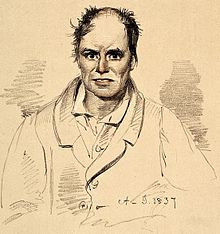**Risk Factors for Depression:**
– Childhood adversity such as bereavement, neglect, and abuse increases the risk of depression in adulthood.
– Poor housing quality, exposure to noise, and air pollution are linked to depressive moods.
– Physicians have high rates of depression and suicide compared to other professions.
– Life events like childbirth, financial difficulties, and relationship troubles can cause depressed mood.
– Neuroticism and low extraversion are personality traits associated with a higher likelihood of experiencing depressive symptoms.
– Chronic use of substances like alcohol, opioids, stimulants, and prescription drugs can worsen or induce depression.
– Non-psychiatric illnesses such as infectious diseases, nutritional deficiencies, chronic pain, stroke, diabetes, cancer, and HIV are linked to depression.
**Medical Factors Contributing to Depression:**
– Some medications like beta-blockers, alpha interferon therapy, finasteride, and isotretinoin can induce or exacerbate depression.
– Anticonvulsants, antimigraine drugs, antipsychotics, and hormonal agents may increase the risk of depression.
– Depressed mood can result from diathesis-stress models, psychiatric syndromes like major depressive disorder, bipolar disorder, borderline personality disorder, and adjustment disorder with depressed mood.
– Various theories including Cognitive theory, Tripartite Model of Anxiety and Depression, Behavioral theories, Evolutionary approaches, Biology of depression, and Epigenetics contribute to understanding depression’s causes and manifestations.
**Assessment and Measurement of Depression:**
– Beck Depression Inventory-11 and the 9-item depression scale in the Patient Health Questionnaire (PHQ-9) are commonly used to measure depression severity.
– These psychological tests help therapists identify symptom patterns, monitor recovery, and gauge the severity of depression symptoms.
– Responses on these measures can be discussed in therapy to devise interventions for distressing symptoms.
**Management and Treatment of Depression:**
– Depressed mood may not always require professional treatment, with physical activity and yoga showing protective effects against depression.
– Antidepressants are not routinely recommended for mild depression.
– Reminiscence therapy, focusing on recalling fond memories, can be an alternative treatment.
– Psychotherapy and counseling, along with evidence-based treatments, play a crucial role in managing depression.
**Epidemiology and Impact of Depression:**
– Depression is the leading cause of disability worldwide, affecting over 300 million people.
– Approximately 4.4% of the global population has depression, with women, young people, and the elderly being the most affected.
– Barriers to treatment include inaccurate assessment, lack of trained healthcare providers, and social stigma.
– Unemployment doubles the risk of developing depression.
Depression is a mental state of low mood and aversion to activity. It affects more than 280 million people of all ages (about 3.5% of the global population). Depression affects a person's thoughts, behavior, feelings, and sense of well-being. Depressed people often experience loss of motivation or interest in, or reduced pleasure or joy from, experiences that would normally bring them pleasure or joy.
| Depression | |
|---|---|
 | |
| Lithograph of a person diagnosed with melancholia and strong suicidal tendency in 1892 | |
| Specialty | Psychiatry, psychology |
| Symptoms | Low mood, aversion to activity, loss of interest, loss of feeling pleasure |
| Causes | Brain chemistry, genetics, life events, medical conditions, personality |
| Risk factors | Stigma of mental health disorder |
| Diagnostic method | Patient Health Questionnaire, Beck Depression Inventory |
| Differential diagnosis | Anxiety, bipolar disorder, borderline personality disorder |
| Prevention | Social connections, physical activity |
| Treatment | Psychotherapy, psychopharmacology |
Depressed mood is a symptom of some mood disorders such as major depressive disorder and dysthymia; it is a normal temporary reaction to life events, such as the loss of a loved one; and it is also a symptom of some physical diseases and a side effect of some drugs and medical treatments. It may feature sadness, difficulty in thinking and concentration and a significant increase or decrease in appetite and time spent sleeping. People experiencing depression may have feelings of dejection or hopelessness and may experience suicidal thoughts. It can either be short term or long term.





